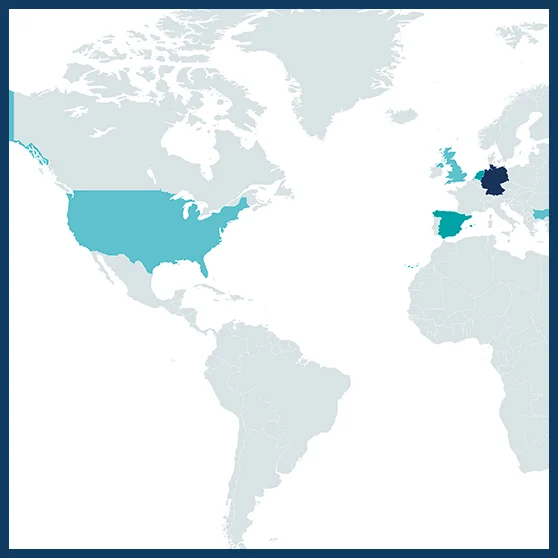
01.04.2022 – 31.03.2025
€ 601,098
Ulf STEIN
ulf.stein@ecologic.eu
Coordinator: Biology and Nature-based Solutions, Ecologic Institute, Berlin, Germany
Projects, Pensoft Publishers, Sofia, Bulgaria
Aquatic Ecology, Netherlands Institute of Ecology, Wageningen, Netherlands
Landscape Architecture, University of Sheffield, Sheffield, United Kingdom
Civil & Environmental Engineering, Northeastern University, Boston, United States of America
Environmental Science and Technology, Universitat Autónoma de Barcelona, Bellaterra, Spain

Combined drainage systems transport wastewater, stormwater and urban runoff together to a sewage treatment plant. Heavy rainfall can flood these systems and exceed capacities, resulting in the discharge of excess waste water and contaminated run off directly into rivers, streams or other nearby water bodies. High resultant water pollution poses a serious threat to aquatic biodiversity, especially in urban areas where impervious surfaces prevent rainwater infiltration and increase the likelihood of such overflow events. surfaces prevent rainwater infiltration and increase the likelihood of such overflow events.
There is thus an urgent need to identify new solutions for reducing this burden both on sewage systems and aquatic ecosystems. Nature-Based solutions (NBS) are proposed as an alternative to the cost-intensive renewal of wastewater systems and as a supplementary element to existing stormwater management systems, having the potential to alleviate pressure during high rainfall events while also providing wider societal and environmental benefits. Societal uptake remains limited due in part to lacking evidence, approaches and targeted guidance that take the wider social-ecological-technological system (SETS) into account. NICHES aims to fill this gap by defining a holistic SETS framework for understanding restorative NBS for urban runoff mitigation and the resultant reduction of impacts on aquatic systems.
NICHES will utilise five global cities as co-design arenas to explore the potential for mitigating combined sewage overflow (CSO) through NBS and thereby reduce negative impacts on aquatic ecosystems. Working together with stakeholders in our case studies (e.g. policy makers, practitioners, NGOs and community groups and the wider public, sectoral actors and the private sector), the project will examine the ecological, social and economic impacts of CSO on aquatic ecosystems. An integrated assessment framework will also be developed to understand the potential of NBS for urban runoff mitigation and explore trade-offs in meeting the needs of populations in different parts of the urban system. Finally, the project will co-conceive transition pathways for integrating restorative NBS into urban policies. The pathway development will build on i) a governance and policy analysis related to the management of urban waters and ii) an integrated assessment framework to assess stakeholders’ needs and values against political and economic feasibility. A co-design approach across all activities will engage relevant stakeholders and ensure the relevance and wider applicability of results for increased uptake.
NICHES will demonstrate restorative NBS’s mitigation potential for tackling combined sewer overflow and diffuse pollution impacts on aquatic ecosystems through the enhancement of urban water retention capacities. This will be accomplished by advancing scientific knowledge about restorative NBS via new approaches and applications of impact assessments, models and transitional governance approaches. More specifically, NICHES will utilise five case studies to co-create knowledge and develop a shared understanding of restorative NBS that can be applied to avoid storm-water runoff. This will help to overcome policy and planning silos by creating an interdisciplinary understanding of NBS potentials in water management and facilitate wider NBS implementation and CSO reduction. Second, a novel ecosystem provisioning module will be generated to enable decision-makers to oversee the consequences of CSO events on ecosystem service provisioning. Third, NBS scenario maps will support increased consideration of hydrological impacts in planning and decision-making. Additionally, NICHES will develop an integrated water assessment framework for restorative NBS. The holistic approach includes consideration of trade-offs and synergies between target, benefits and policies for conservation/restoration. Finally, NICHES will co-develop transition pathways for increased integration of NBS within existing local policy frameworks in the areas of e.g. water management, biodiversity protection, and climate change adaptation. The project will also support more integrated governance approaches to overcome institutional lock- ins and path dependencies.
NICHES will generate new knowledge to improve NBS effectiveness and upscaling for (aquatic) restoration and to mitigate impacts from combined sewage overflow. Strong stakeholder involvement through co-development processes will enable an active discourse and the inclusion of end-user perspectives in the design of the NBS and transition pathways. Targeted outreach and exploitation activities with the key local stakeholder groups outlined above as well as national and EU decision-makers and technical experts, the research community and sectoral actors will enhance policy development and the exploitation of project results within the NICHES case study cities and beyond. A final virtual conference will serve to bring representatives of these groups together to create an interactive setting for dialogue and learning. Support for numerous EU policies such as the Water Framework Directive, Biodiversity Strategy for 2030 and upcoming Restoration Plan as well as the Flood Directive, Water Trewatment Directive and Adaptation Strategy) will be provided through biodiversity and natural resource protection, increased NBS uptake, and improvements to human health and water quality.
NICHES follows a three-tiered engagement approach, which entails:
- the co-development and comprehensive application of key methods across three core cities (Barcelona, Rotterdam, Boston);
- an in-depth application of select innovative methods in single cities;
- a refinement, validation and extraction of lessons learnt through a targeted involvement of and integration with all five NICHES cities (including Berlin and Sheffield as peripheral cities) to foster upscaling and wider application beyond the project.
These five cities represent diverse social, economic and ecological contexts, levels of experience with NBS and related policies, and sewage and climate challenges.
- VDI/VDE-IT, Germany
- Ministry of Agriculture, Nature and Food Quality (LNV), Netherlands
- Agencia Estatal de Investigación (AEI), Spain